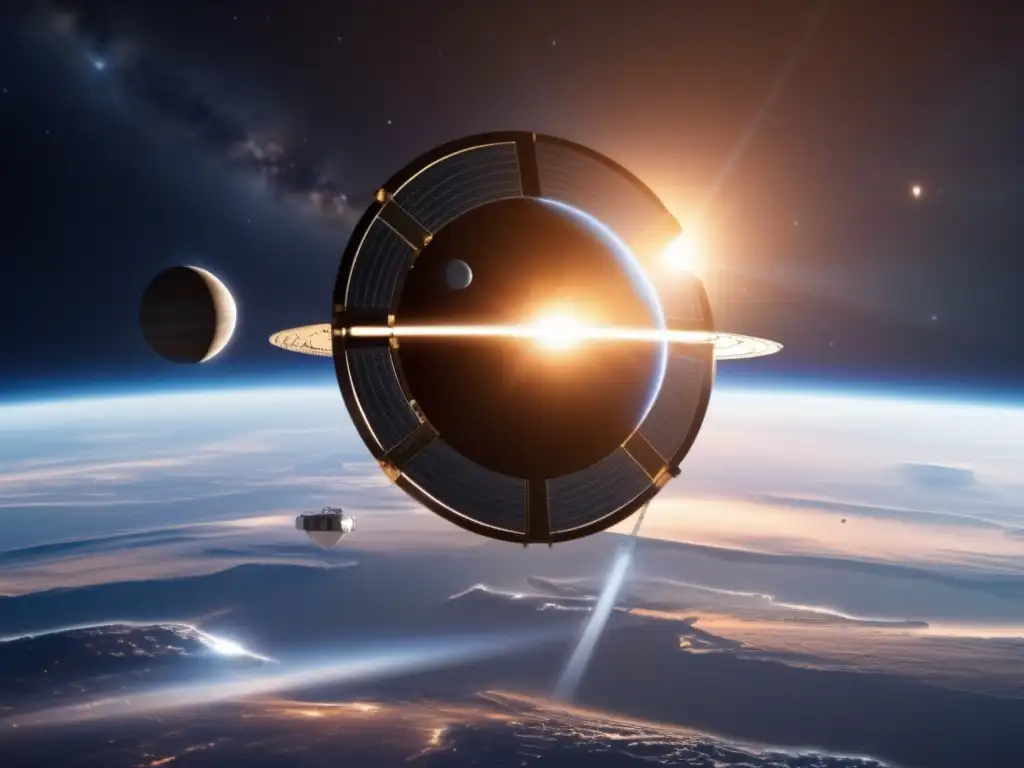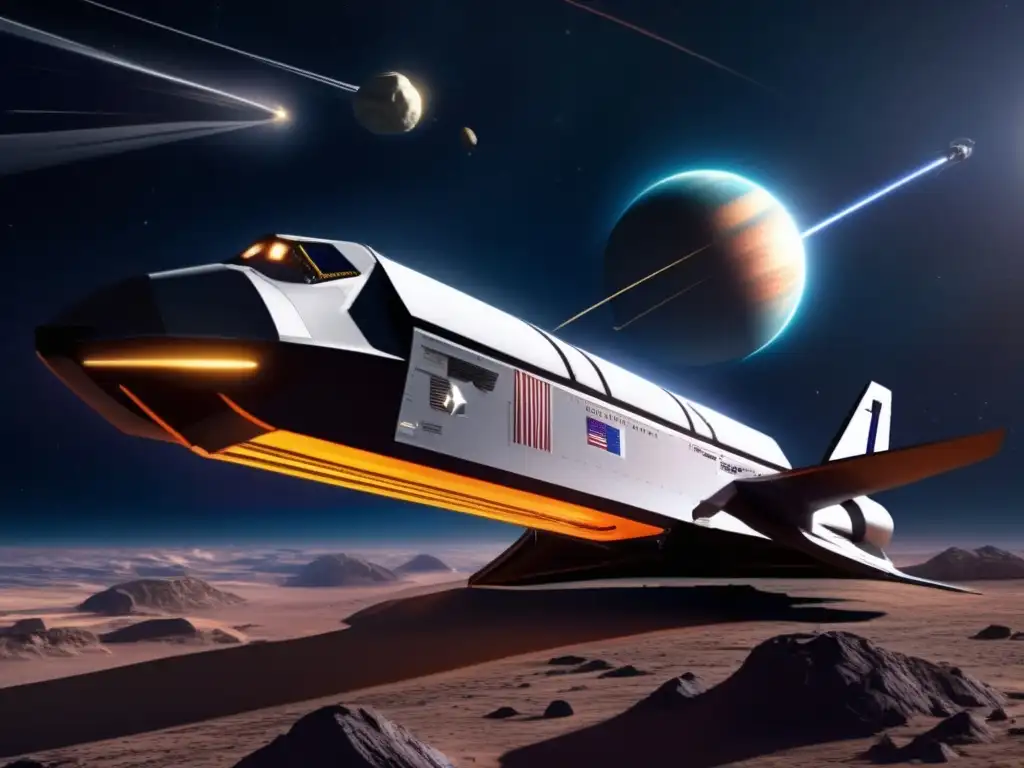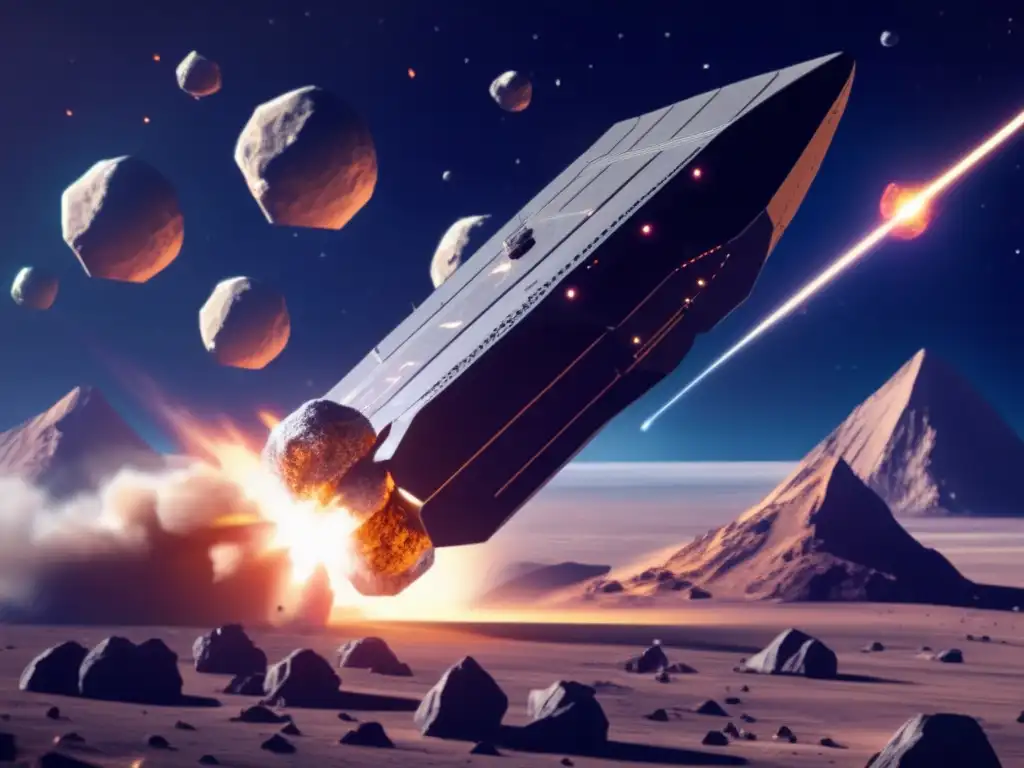Planetary Shield: The Science Of Asteroid Defense

Introduction
Every day, asteroids travel through space, some of which pose a potential threat to Earth. Impacts from these space rocks can cause mass destruction, and even lead to the extinction of life on our planet. In order to prevent such catastrophes, planetary defense experts have developed various methods for protecting Earth, including the use of a Planetary Shield.
The Planetary Shield

The Kinetic Impact Method
One of the most common techniques for defending Earth from an asteroid impact is the kinetic impact method. This involves sending a spacecraft to collide with the asteroid, in order to change its trajectory and prevent it from hitting Earth. In 2005, NASA's Deep Impact mission successfully demonstrated this method by colliding with comet Tempel 1.
The Gravity Tractor Method
The gravity tractor method involves using a spacecraft to gently tug an asteroid off course. By hovering near the asteroid, the spacecraft’s gravitational pull will gradually alter the asteroid's trajectory. This method has been proposed for NASA's Asteroid Redirect Mission, which seeks to redirect an asteroid into lunar orbit for further study.
The Nuclear Option
The nuclear option involves detonating a nuclear device near an asteroid in order to deflect it off course. Although this method has not been tested, it is considered a viable last resort if all other options fail, due to its potential risks and environmental concerns.
Planetary Defense Technology

Sentry System
The Sentry System is a software program developed by NASA that monitors Near-Earth Objects (NEOs). This system uses data from telescopes around the world to track the trajectory of potential threats and calculate the probability of impact. If a dangerous asteroid is identified, an alert is sent to relevant agencies to take action.
NEOShield-2
NEOShield-2 is a European space mission that aims to develop new technologies for planetary defense. The mission includes the development of a laser system that could vaporize small asteroids, as well as a guidance system for spacecraft that would allow for more precise asteroid deflection.
Hypervelocity Asteroid Impact Vehicle (HAIV)
The HAIV is a spacecraft being developed by the University of Glasgow that could be used to test asteroid deflection methods. The vehicle would be sent on a collision course with an asteroid, in order to simulate the kinetic impact method. Data collected from these experiments would help scientists refine their asteroid defense strategies.
The Future of Planetary Defense

International Cooperation
In recent years, there has been a growing recognition of the need for international cooperation in the field of planetary defense. The United Nations has established the International Asteroid Warning Network to coordinate efforts of different countries in monitoring and defending against asteroid threats.
Space Mining
Another potential benefit of asteroid exploration is space mining, which involves extracting valuable resources such as water, minerals, and metals from asteroids. As the technology for asteroid mining develops, this industry could become a vital component of planetary defense, with miners also helping to identify and deflect dangerous asteroids.
Advanced Technology
The development of advanced technologies such as artificial intelligence and machine learning could greatly enhance our ability to detect and defend against asteroid threats. By analyzing large amounts of data, these systems could help us identify potentially hazardous asteroids more quickly and accurately.
Frequently Asked Questions

-
What is the Planetary Shield?
The Planetary Shield refers to different methods and technologies used for defending Earth from asteroid impacts.
-
What are some of the asteroid defense techniques?
Some asteroid defense techniques include the kinetic impact method, the gravity tractor method, and the nuclear option.
-
What is the Sentry System?
The Sentry System is a software program developed by NASA that monitors Near-Earth Objects (NEOs) and calculates the probability of impact.
-
Why is international cooperation important for planetary defense?
International cooperation is important for planetary defense because it allows for the sharing of resources and expertise, and enhances our ability to monitor and respond to potential threats.
-
What role could space mining play in asteroid defense?
Space mining could help identify and deflect dangerous asteroids, while also providing valuable resources for further space exploration.
Conclusion
The threat of an asteroid impact may seem like science fiction, but it is a very real danger that requires our attention. Fortunately, with the development of new technologies and increased international cooperation, we are better equipped than ever before to protect ourselves from potential asteroid threats. Let’s continue to invest in these efforts and work together to ensure the safety of our planet.
Thank you for reading this article. If you have any comments or questions, please feel free to share them in the comments section below. Don’t forget to subscribe to www.asteroidrealm.com for more asteroid-related content.
Additional Resources

Hypervelocity Asteroid Impact Vehicle (HAIV) Mission Page
 Gearing Up For Galactic Threats: Strategies For Asteroid Defense
Gearing Up For Galactic Threats: Strategies For Asteroid Defense Guardians Of Earth: The Future Of Asteroid Defense
Guardians Of Earth: The Future Of Asteroid Defense Aiming At Asteroids: Techniques In Planetary Defense
Aiming At Asteroids: Techniques In Planetary DefenseIf you want to discover more articles similar to Planetary Shield: The Science Of Asteroid Defense, you can visit the Planetary Defense category.
Leave a Reply

Articulos relacionados: